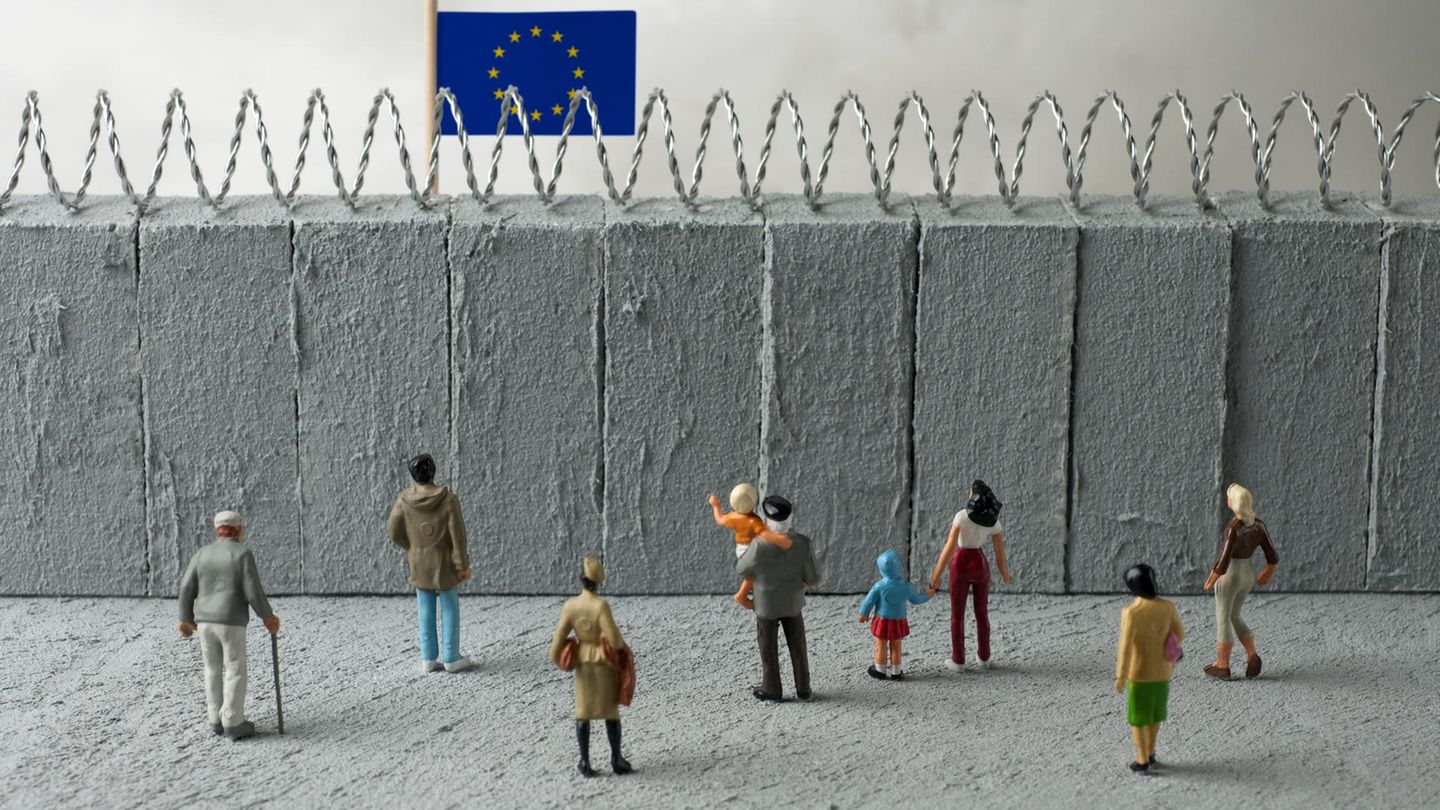Safe countries of origin
“The EU delivered political ammunition to the coalition”
Copy the current link
Add to the memorial list
For the first time, the EU has presented its own list of safe countries of origin. Migration experts explain what is behind the decision and what it means for Germany.
Refugees from safe countries of origin have a hard time getting asylum. For these countries, the presumption of the rule applies in German authorities that there is no risk of persecution. In most cases, asylum applications are rejected as “obviously unfounded”. Simplified deadlines apply, accelerated procedures.
Usually EU member states decide independently which countries they consider to be safe. There are currently ten in Germany. This has led to a patchwork in European migration policy. The EU has now published its own list of safe countries of origin for the first time: Kosovo, Bangladesh, Colombia, Egypt, India, Morocco and Tunisia.
Two migration scientists explain what it is behind this decision and what it means for Germany: Hannes SchammannProfessor of Political Science with a focus on migration policy at the University of Hildesheim, and Victoria RietigHead of the Center for Migration of the German Society for Foreign Policy.
Why now an EU list of safe countries of origin?
It is the first time that the EU is making such a list. What prompted the EU to publish a common list of all people?
Hannes Schammann: In recent years we have seen that migration policy was a split topic in the EU – even more than economic crises. The EU is now trying to find common approaches in migration policy. It is hoped that the member states can be gathered behind this list of safe countries of origin.
Member States have all their own lists safer Countries of origin. Why don’t you leave it up to the individual countries to decide who they will take?
Hannes Schammann: The EU tries to emphasize its own relevance again. In recent years we have experienced a renationalization of migration policy. Loss approaches of individual countries have undermined the legitimacy of the EU-not least when the Hungarian Prime Minister Viktor Orbán consistently avoided EU asylum law and even ignored the European Court of Justice. The list is part of the strategy to get re-Europeanization. However, the new common European asylum system is more important than this list. Here the EU is now pushing for a quick implementation in the member states.
Lots of asylum seekers, low protection rate
What criteria does the EU decide whether a country is considered a safe state of origin?
Victoria Rietig: The task of creating a method for this country list was with the European Asy Lagstency. It looked at which countries come from many asylum seekers and at the same time have a very low protection rate, i.e. on average less than five percent of the applicants receive a positive asylum notice.
The concept of safe countries of origin is often criticized as arbitrary. But that sounds very systematic.
Victoria Rietig: Despite its objective criteria, this list is a bit arbitrary. Because the protection rate is very different in the Member States and some countries artificially move down the average. The award of protection is so inconsistent in Europe that you can recognize a political drive behind it.
In 2023, only around 3,000 refugees came to Germany from Colombia. What motives are behind this classification?
Hannes Schammann: For Germany, the classification of Colombia as a safe country of origin is actually not relevant. For Spain, on the other hand, this decision should be more important. The EU has tried to lace an attractive overall package for different recording countries.
Victoria Rietig: The list has no direct impact on the current list of safe countries of origin in Germany. However, it legitimizes the expansion of the list.
Morocco, Tunisia, Egypt and India
In the coalition agreement, the Union and the SPD agreed to classify Morocco, Tunisia, Egypt and India as safe countries of origin. Is this list a favor of the new black-red coalition?
Victoria Rietig: Yes. The EU has delivered political ammunition to the coalition for its decision. The classification of these countries as safe is very controversial. Both Tunisia and Egypt are very dangerous countries for opposition forces. The latter even stages some observers as a unfree dictatorship. This list will certainly not save the discussion about whether these countries in Germany should really be classified as safe countries of origin.
Why does the new coalition want these countries on the list?
Hannes Schammann: The North African countries are interesting for Germany because a strong population growth is expected there in the coming years. This could significantly increase migration pressure. One can therefore understand their classification as a safe countries of origin as a preventive measure. However, one should not forget that this classification is temporary – the security situation can change dramatically at any time.
What does this list mean for refugees from these countries?
Hannes Schammann: It depends on how the Member States deal with it. No Member State has to take over this list – it is just a proposal. The EU tries to offer the Member States a guardrail in the migration debate. Basically, an asylum application must also be checked from safe countries. There may always be political persecution in individual cases. But in general, the classification means that asylum applications from these countries will be processed in an accelerated procedure in the future.
Why does not mean rejected
Will the common EU list actually lead to a noticeable relief of the asylum system?
Hannes Schammann: The one question is whether an asylum application can be rejected. The other is whether the person is actually put on a plane home. The list of safe countries of origin will initially not relieve the local immigration authorities on this question. Above all, it has a signal effect. In perspective, there is hope that people from these countries will not even come.
In the past, the signal effect of such lists has not done much. Why should that be different now?
Hannes Schammann: Some EU member states already have their own lists of safe countries of origin. By trying to harmonize the individual lists in the EU, there is hope to increase the daunting effect.
Source: Stern
I have been working in the news industry for over 6 years, first as a reporter and now as an editor. I have covered politics extensively, and my work has appeared in major newspapers and online news outlets around the world. In addition to my writing, I also contribute regularly to 24 Hours World.





